Where can you possibly go, after Horrors of the Black Museum and Konga? Forsaking such obvious destinations as ‘prison’, ‘self-imposed exile’ and ‘a career in real estate’, the indomitable Herman Cohen instead added two and two to make five and gave us BLACK ZOO, the grimly unspectacular finale to his Michael-Gough-as-mad-bastard trilogy.
Like its predecessors, ‘Black Zoo’ is a curious film, but it is never “weird” in quite the same way that we might enthusiastically describe a lunatic aberration like ‘Konga’ as “weird”. On the contrary, what we have here is a gloomy and utilitarian bit of sizzle-not-the-steak drive-in schlock, saved from oblivion only by vestige of the fact that, like all good gutter pulp entertainment, it occasionally blunders into situations and concepts that are just so damn peculiar they seem entirely beyond the ken of a well-ordered mind.
Unlike ‘Konga’, ‘Black Zoo’ is not a film that’s ever likely to be revived for any raucous midnight screenings, or championed as some wild, way-out b-movie triumph - basically it’s too cheap and depressing to really make for a fun time for any but the most jaded or dedicated of trash-horror viewers. But nonetheless - to stretch Friedman’s famed maxim to breaking point, you’re not lacking the steak here, so much as you’re getting some pretty strange-looking steak, liberally flavoured with something you can’t quite place and really aren’t too sure about.


The most immediately notable difference between ‘Black Zoo’ and the two previous Cohen/Gough collaborations is that this one is shot, and apparently set, in America rather than the UK. Southern California to be precise, although you wouldn’t know it from the bare sets and featureless suburban exteriors on display.
It is here that we find Gough’s by now thoroughly familiar villainous, egomaniacal bastard character (this time named Michael Conrad) operating a small zoo, ‘Conrad’s Animal Kingdom’, wherein members of the public can gawp at his prized collection of caged big cats, delight at the antics of the performing chimpanzees trained by Conrad’s wife Edna (Jeanne Cooper), and attempt to spot the seams on the costume of a rather familiar looking moth-eaten gorilla. All this assuming that visitors can duck the constant threat of being cornered by the smarmy, faux-aristocratic proprietor himself and regaled with patronising homilies about the beauty of the natural world (“don’t forget, animals have feelings, just like you or me”), his obvious psychopathic streak just barely concealed beneath his philanthropic posturing.
Even more so than in his earlier horror roles, Gough presents a abominably hateful presence here – truly one of the nastiest, most cringingly dislikable protagonists ever to grace the screen, with the threadbare nature of the ‘Black Zoo’s production values placing the emphasis almost entirely upon his performance, thus driving him on to unprecedented and frankly quite upsetting outbursts of spittle-flecked, lip-curling mania. Harsh vibes, to say the least.
Given the baronial, ubermensch-like self-regard with which Gough’s character carries himself, I kept waiting for him to draw our attention to his renowned scientific expertise, the results of his ground-breaking research, his cursed aristocratic ancestry or his unrivalled academic prowess. But no – apparently Michael Conrad is just some bloke who runs a zoo and thinks a lot of himself. This is a Crazy Zookeeper Movie, take it or leave it, and when a highly strung Michael Gough starts gnashing his teeth in fits of paranoid rage as he fingers the keys to the leopard cages, you can probably more or less guess where such a disappointingly reductionist plot set-up is headed.
I say ‘more or less’, because as mentioned, Cohen & Aben Kandel’s script throws in some otherly inspired curveballs that are arguably worth sticking around for. Before that though, things initially proceed in thoroughly dispiriting fashion, rehashing many elements of the two earlier films with no great enthusiasm but plenty of mean-spirited zeal, as Conrad stomps around treating his wife like shit, treating their mute servant/adopted son Carl (Rod Lauren) like his own personal slave, and exploding with ill-founded jealousy when Edna dares suggest that Carl might appreciate being treated like a human being once in a while, eventually culminating in Herman Cohen’s ultimate expression of gruesome domestic dysfunction, as a red-faced Gough hurls a foul-looking dish of casserole straight at the kitchen lino.
Little known actress Cooper just about manages to retain her dignity, putting in a pretty good turn as Edna, though she might as well be carrying a sign reading “you just try getting work in this industry as a middle-aged woman”, such is the feel of grim, get-the-job-done professionalism her presence conveys.
Meanwhile of course, Conrad, reveling in hypocrisy wherever he can, goes into ‘lecherous creep’ mode at warp-speed as soon as spies some busty, be-sweatered art students (one played by Marianna Hill, who went on to appear in BITR favourites like ‘Messiah of Evil’, ‘Blood Beach’, and, oh yeah, something called ‘The Godfather: Part II’) making sketches of his prized tiger, sparking a contrived courtship just as hellish as the one he cooked up with Claire Gordon in ‘Konga’. Add a “big shot property developer” trying to muscle in on the zoo’s real estate into the mix, a show biz friend of Edna’s trying to persuade her to ditch her husband and take her performing chimp act back on the road(!), and, yeah, here we go again, etc.
Bullying people, leering at college girls and murder are really only sidelines for Conrad though. What he loves most in life is animals, and specifically HIS animals. Quite how, why and where he acquired this obsession fixation with wild beasts is never really explored, but then, neither is his justification for worshipping his feline chums like living gods whilst remaining largely indifferent to their day-to-day discomfort as they prowl around their sad, bare cages being gawped at by gangs of insultingly cartoonish American holiday-makers.
As in ‘..Black Museum’, Cohen & Kandel have come up with the potential for a pretty interesting “insight into the mind of a psychopath” character study here, but once again they seem completely uninterested in building upon it in any meaningful fashion. “He’s just NUTS,” seems to be about as far as their thought process deigns to venture. Pay attention though, because this is where things start to get weird, with the lack of anything resembling a conventional back story / psychological justification for our anti-hero’s antics rendering things stranger still.
‘Black Zoo’s first real “rub your eyes and shake your head” moment arrives once business at Conrad’s Animal Kingdom is concluded for the day, when, his daily quota of snarling and belittling presumably met, Conrad strides over to the pipe organ installed in the corner of his living room (never a good sign, let’s face it), and begins to play a slow, lonesome fugue.
Carl opens the study door, and one by one the zoo’s big cats are ushered in, where they deposit themselves on a selection of moth-eaten furniture to listen to the conclusion of their master’s recital. “My children,” he addresses the animals after the music is concluded, “I brought you here because we have to face to problem..”. Evil, scheming men out in “the so-called world of humans” are out to destroy their home, Conrad tells his ‘children’.
No prizes for guessing what Conrad’s proposed solution to this problem is, but let’s just say that, as in ‘Konga’, I’m driven to wonder how visiting your perceived enemy’s home and throwing a wild animal in their face is in any way less conspicuous than visiting their home and just, say, killing them using more conventional means – especially given the speed which you’d assume even the most incompetent police force might join the dots between a case of murder-by-tiger and a local zoo managed by an egotistical nutcase.
As a jaded 21st Century viewer, I may not share the simplistic “Wow, zoo animals!” shuck upon which much of this ‘Black Zoo’s presumed entertainment value seems to rest (as ever, Cohen’s sheer disdain for his audience knows no bounds), but even I’ve got to admit – the sight of Michael Gough delivering a lecture to a room full of docile big cats, speaking to them much in the manner of a condescending school headmaster before treating them to another demonstration of his baleful organ mastery, is a somewhat peculiar bit of business to say the least.
The best (by which I mean ‘weirdest’) scenes in ‘Black Zoo’ are yet to come however, and the next obvious stand-out as the funeral Conrad holds for his prize tiger, Baron, who has regrettably been shot by ill-fated junior zookeeper Elisha Cook Jr (for more on him, see below).
This solemn ceremony takes place in a beautiful, fog-shrouded forest grove that seems to belong to a completely different world from the cramped interiors and concrete car parks seen elsewhere in the film. Carl even pulls the tiger’s coffin to its final resting place on a kind of antiquated wooden cart that seems to have been stolen from the set of some period Euro-horror film, and as the other animals file one by one through drifting banks of bright blue fog and past neo-classical statues and gnarled tree-roots, silently observing the burial from their apparently purpose-built, rock-carved seats in a forest clearing, ‘Black Zoo’ briefly becomes an utterly phantasmagorical experience, temporarily assuming the aspect of a Corman/AIP Poe adaptation that’s gone slightly insane.
(This is perhaps not an entirely unexpected development, given that ‘Black Zoo’s Director of Photography Floyd Crosby had overseen pretty much all of the best entries in the AIP gothic horror cycle up to 1963. Considering the uniqueness and popularity of the atmosphere he helped create on those pictures, it’s possible that the entire funeral sequence here might have been developed as an excuse for him to strut his stuff.)


Whilst we’re still trying to get our heads around this sylvan gothic tiger funeral, Cohen & co. ratchet up the weirdness up even further, as we’re suddenly dropped into a meeting of what appears to be some kind of illicit cult of animal worshippers of which Conrad is a member (the “True Believers”, as led by “The Great Radoo”, he tells us). I really don’t know where the script-writers are going with this, or how in the hell they came up with such a bizarre notion, but the results seem like some ill-thought out mixture of Christian snake-handlers, a Wheatley-esque satanic coven and one of those eerie Hollywood huckster cults that Phillip Marlowe and The Continental Op used to tangle with back in the day.
‘The Great Radoo’, it turns out, is a chap with a bit of a Lenin-esque look about him, who begins to lead the ceremony after an attendant ritualistically places a mangy-looking tiger-skin rug on his head(!). Radoo then calls upon his brethren (including of course several white-pearled society ladies, several swarthy ‘foreign’ looking gentlemen and a cheery fellow in a turban) to console Conrad on the tragic loss of his beautiful feline soul-mate.
“The soul of Baron, expelled before its time, is now adrift”, Radoo announces, as he and Conrad begin a bizarre fire ritual aimed at guiding Baron’s soul to its reincarnation in a new body. Right on cue, some dinner-jacketed voodoo guys begin beating their drums, and the congregation begin chanting a half-hearted litany of some kind (“enter, enter, enter”). Then, another attendant appears and hands Conrad a whole new tiger-cub – the recipient of Baron’s soul! How’s that for generosity? I mean, I don’t know what kind of subscription fees this animal cult charges, but on the basis of this exchange I certainly can’t fault the benefits.
Where did all this animal cult stuff come from? What does it all mean? I’ve never heard of anything like it before. Really one for the psychotronic brain-wrong hall of fame, I think – one of those prime moments of unintentional surrealism that can be found in all three of these Cohen/Gough collaborations, irrespective of their other merits as motion pictures or works of creative expression. Needless to say, the greater implications of Conrad’s association with this strange group are never really explored, and subsequent to the meeting scene, they are scarcely mentioned again.
As far as other stuff worth a mention in ‘Black Zoo’ goes, well, as mentioned above, there’s good old Elisha Cook Jr to look out for - one of my favourite old time Hollywood character actors, and no doubt yours too. Branching out ever so slightly from his stock “pitiful loser” persona (see the If Charlie Parker Was A Gunslinger blog’s Elisha Cook Jr Gets the Shaft Again strand), Cook’s character here is a rather more surly, dim-witted sort of brute, who, as discussed, incurs Conrad’s psychopathic wrath by cruelly doing away with Baron Mk. I.
Though it’s always a pleasure to see him in action, it’s also kind of sad to see Cook’s stand-in being unconvincingly chomped by a lion midway through ‘Black Zoo’, just a few years after his definitive performance in Kubrick’s ‘The Killing’ – a career slump that perhaps suggests Cook’s real life luck might have been just as lousy as that of the characters he played, at least if the kind of thankless roles he was taking at this point were anything to go by. (For a further connection to the AIP/Poe cycle, look out for Cook’s touching portrayal of a deformed wretch in ‘The Haunted Palace’ the same year. He also of course reunited with Marianna Hill in ‘Messiah of Evil’ a few years later.)
Thus far, we haven’t mentioned the credited director of this particular farrago, and, as with the previous films, Cohen seems here to have gone for his usual MO of hiring a washed up has-been in need of a quick pay cheque, and guiding the poor sap’s career straight to an undignified full-stop. Robert Gordon (not to be confused with much-loved British horror producer Richard Gordon) began directing with a series of low budget boxing pictures in the ‘40s, before making probably his biggest impression with ‘It Came From Beneath The Sea’ in 1955. After that he helmed a couple of unheralded western programmers, and was subsequently relegated to TV-land until Cohen brought him back into the world of features for ‘Black Zoo’.
Gordon’s direction here is as flatly competent as you might fear, with static medium shots predominating, and the same ugly framing and uninspired use of the widescreen frame that blighted ‘..Black Museum’. In fairness though, other aspects of ‘Black Zoo’s technical side fare a lot better, even as the film’s production design rarely stretches much beyond a dispiriting ‘filmed in a prison camp’ kind of look.
Floyd Crosby’s photography is actually rather superb, sometimes verging into the kind of over-saturated pastel Technicolor you’d expect of a ‘60s b-movie, but more frequently pulling off a combination of deep, dark shadows and richly muted primary colours very much reminiscent of his work on the Poe films, lending things a painterly feel that ‘Black Zoo’s cheap-jack situations and minimal set-dressing scarcely merit. Music, by b-movie vet and Sam Fuller collaborator Paul Dunlap, is similarly a lot better than this film really deserves – a testament perhaps to Cohen’s ability to pull an unexpected level of talent into his productions when back on his Hollywood home turf.
Though it for the most part remains an unremarkable bit of mean-spirited drive-in filler, there is nonetheless a kernel of utter craziness at the heart of ‘Black Zoo’ that forever guarantees it a place on my shelves, and on the shelves of all those who consider strangeness for its own sake to be one of the highest virtues a movie can attain.
Basically, whilst watching ‘Black Zoo’, I find myself imagining some middle-aged guy slumped in front of a late night TV screening, suddenly looking incredulous and calling to his wife in the kitchen: “Maude, get out here, you gotta see this! This movie I’m watching, it’s… it’s kinda…strange…”. Then he shivers and rubs his eyes before taking a deep breath and changing the channel. You know – that kind of strange. The kind of strange that has you thoroughly settled into dreary, verge-of-sleep plod, then imperceptibly shifts gears into “is this really happening… where are they going with this?” territory. And, as much as all the out-and-out crazy movies of the world might rant and rave and throw spectral snake-gods and regurgitated robot worms in our faces, isn’t it this more subtle incursion of inexplicable delirium into the midst of an otherwise prosaic time-waster that really represents the strangest strangeness of all..? I dunno. Discuss.
Such a feeling of course offers no excuse for my having used probably the best part of 10,000 words discussing the Cohen/Gough trilogy when I could have been doing something useful instead, but what can I say, at least it’s DONE now, and I can hopefully go a few months without having to contemplate Michael Gough’s smarmy, grinning villain-face… well, until I finally get around to starting my long-awaited Norman J. Warren review thread and get stuck into ‘Satan’s Slave’ at least. As for Cohen, I’ve had quite enough of him for the time being too, and hope I can spend slightly more of 2015 writing about some films that actually deserve such lengthy contemplation. But wait, what’s that you say, IMDB? He moved back to the UK after this one? ‘Trog’, with Joan Crawford? ‘Beserk’, with Joan Crawford AND Michael Gough? ‘Craze’, with Jack Palance? Dear god. Help me, please, I - - [communication ends].




















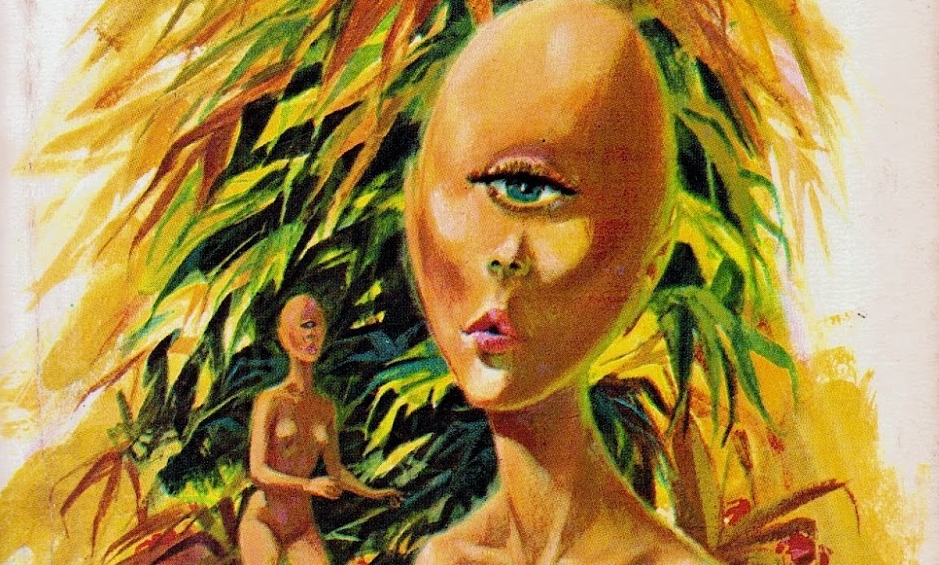
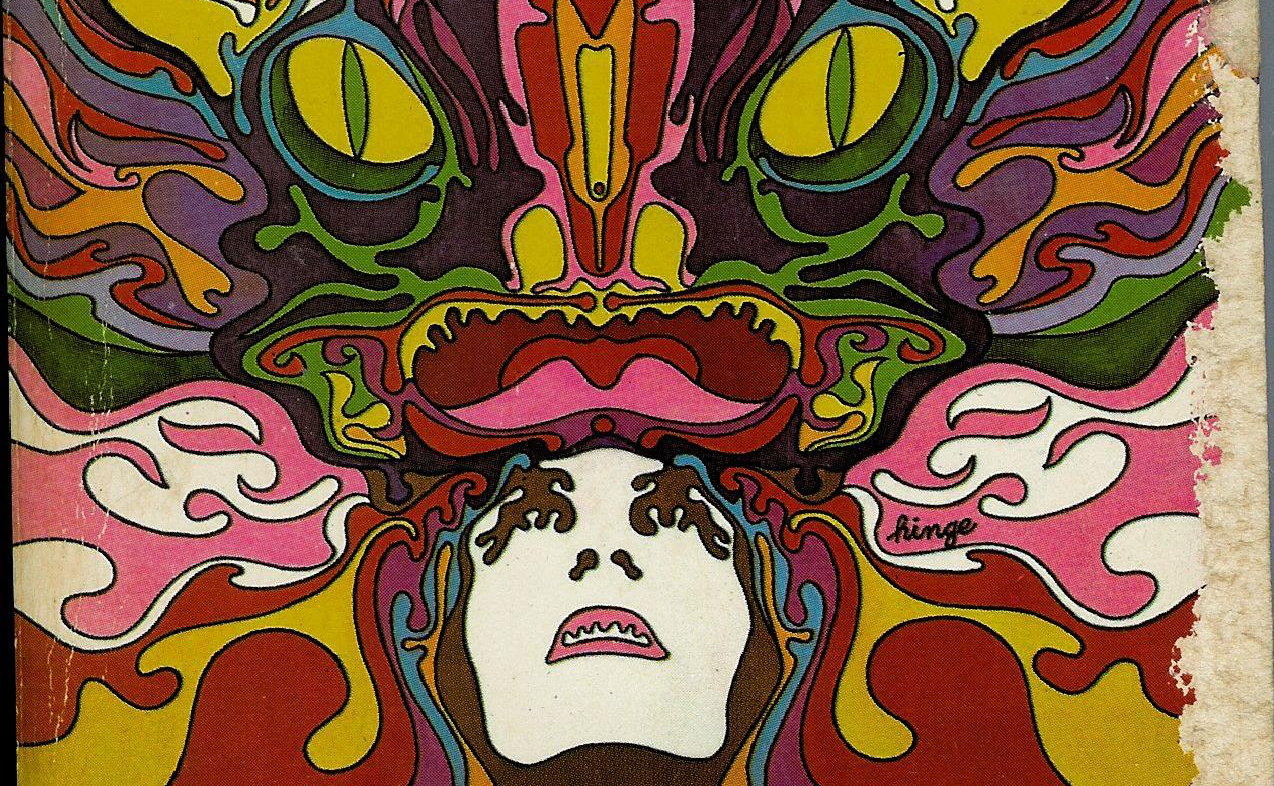

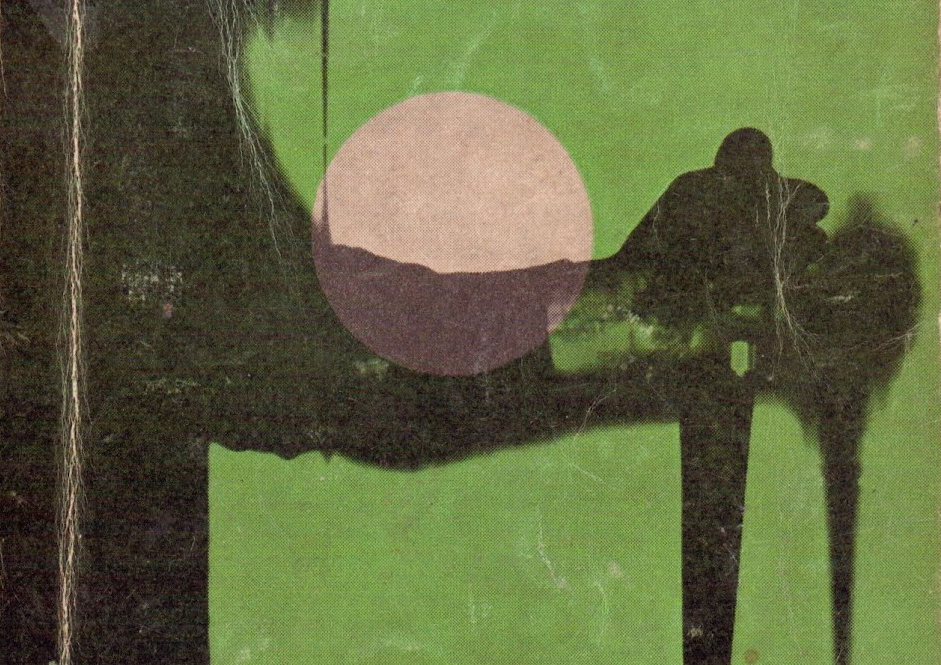
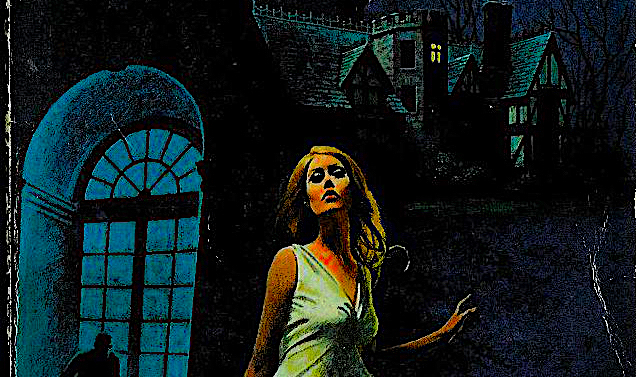
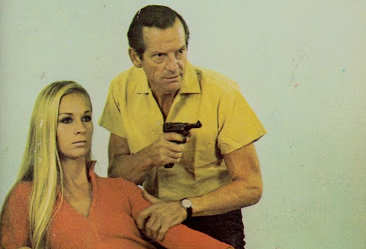
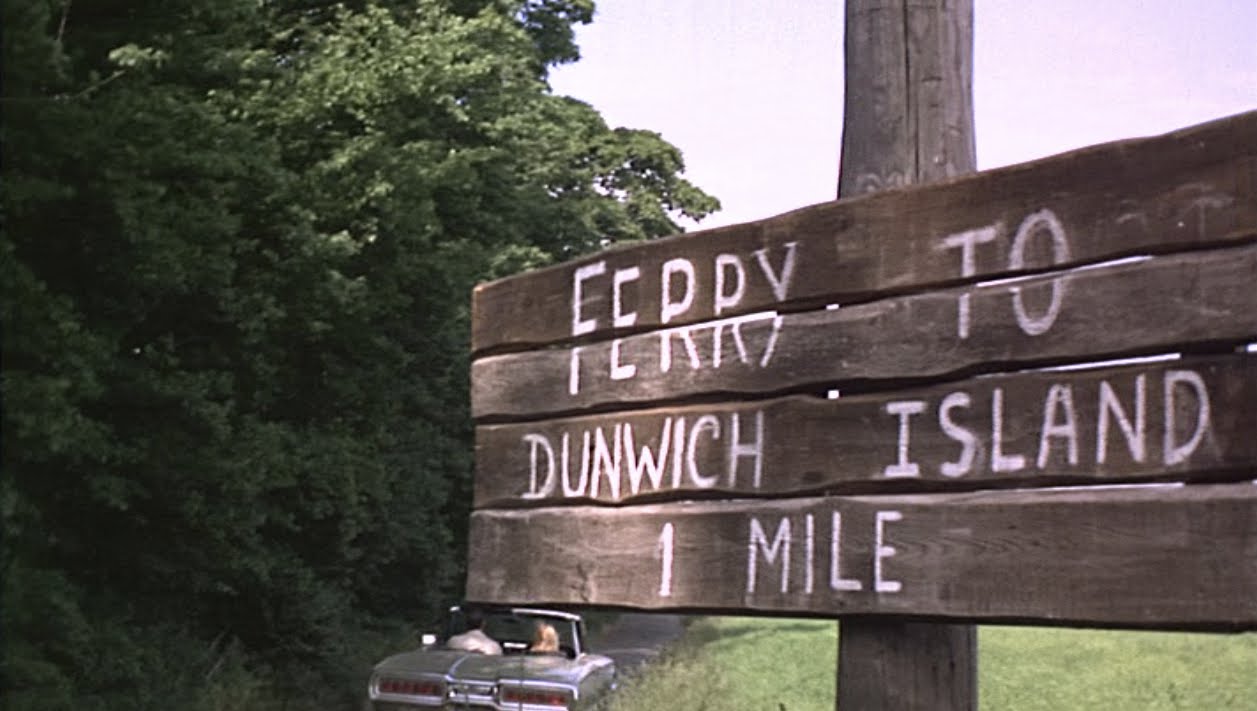
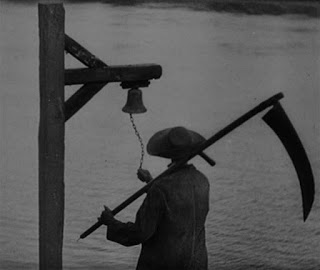
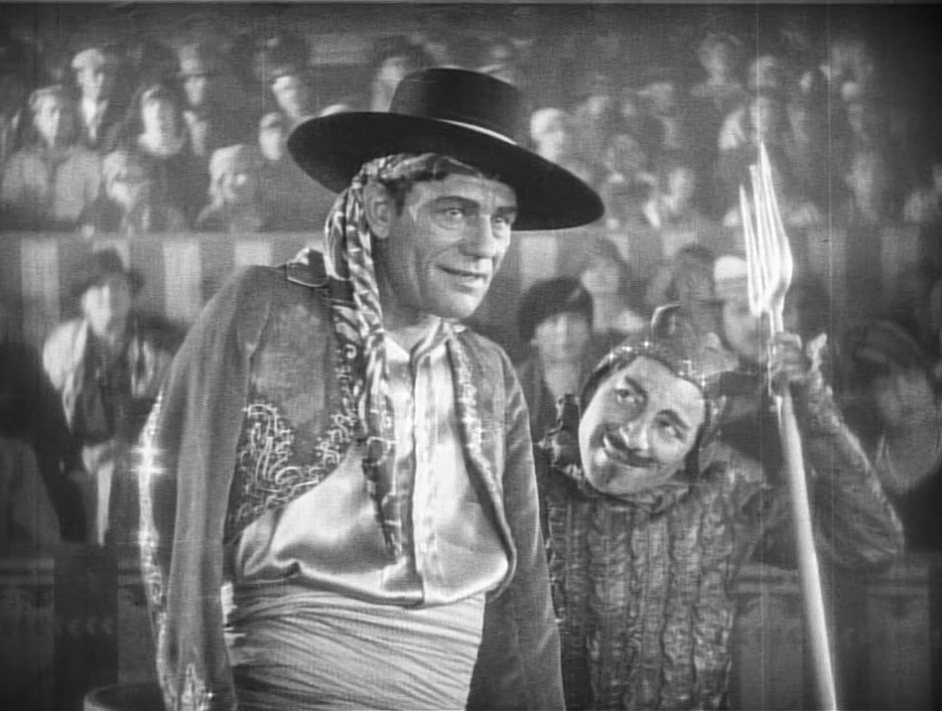
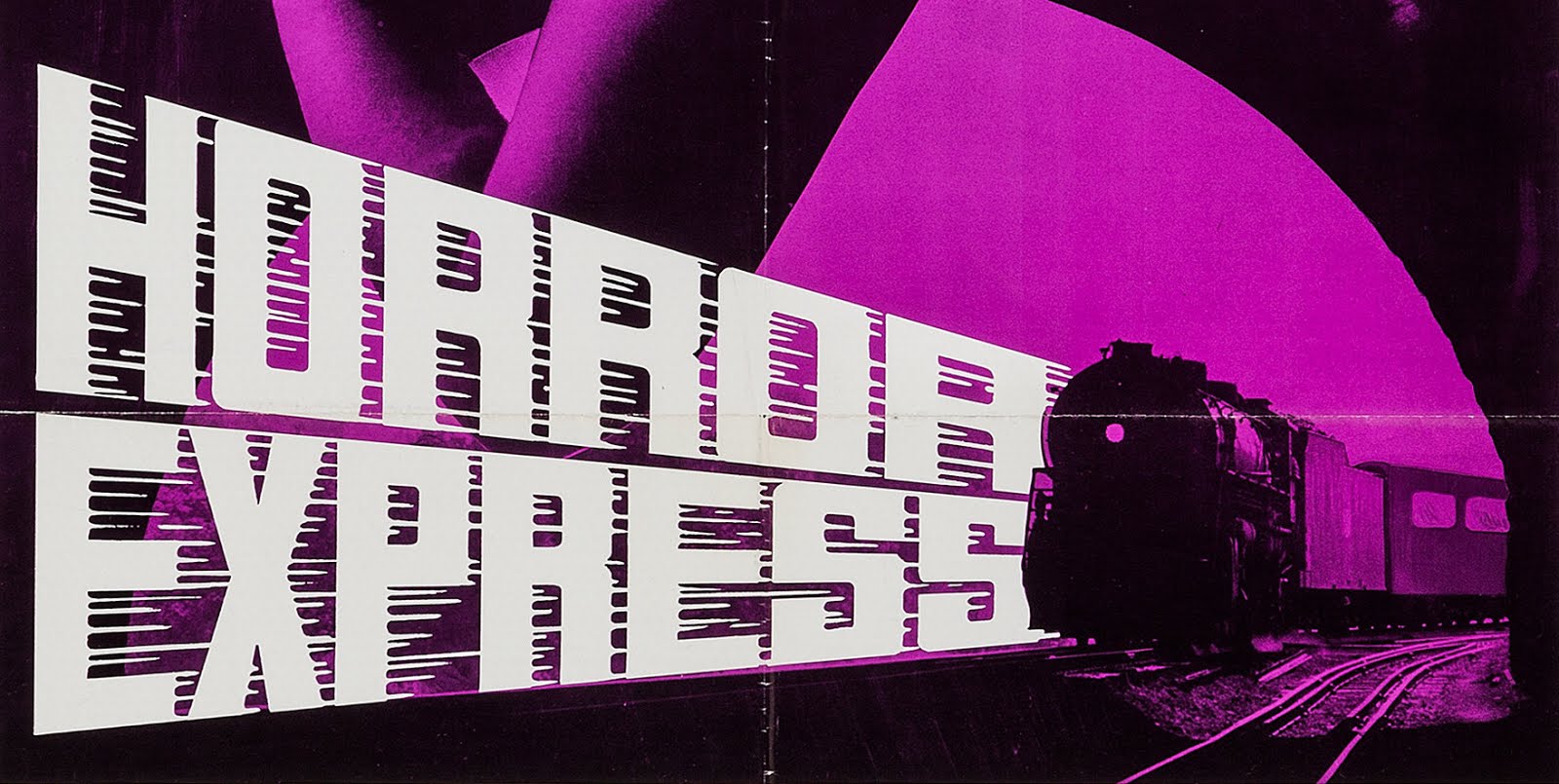
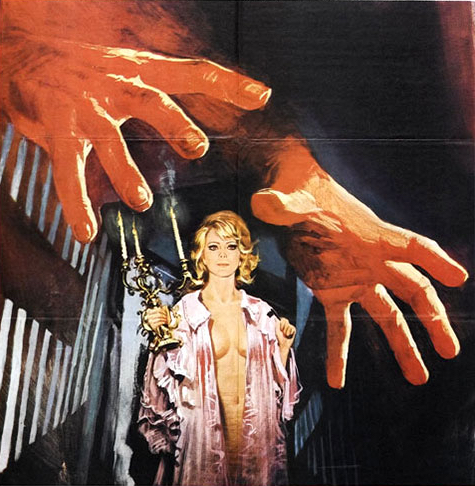

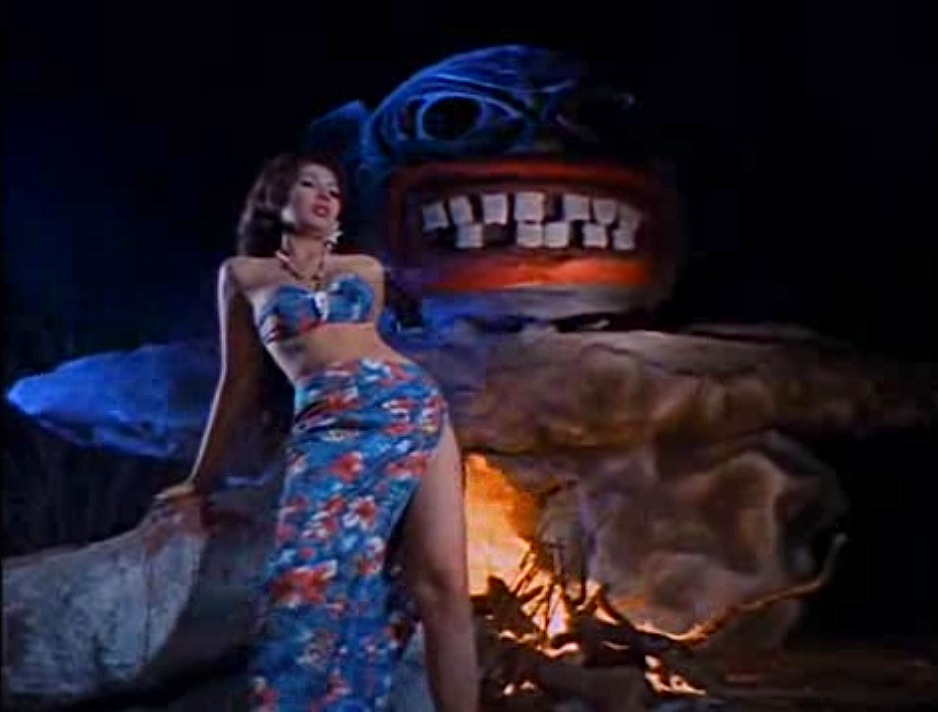




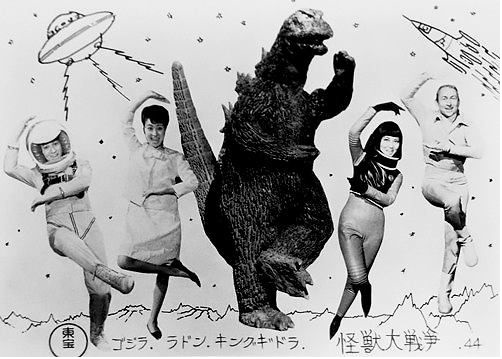
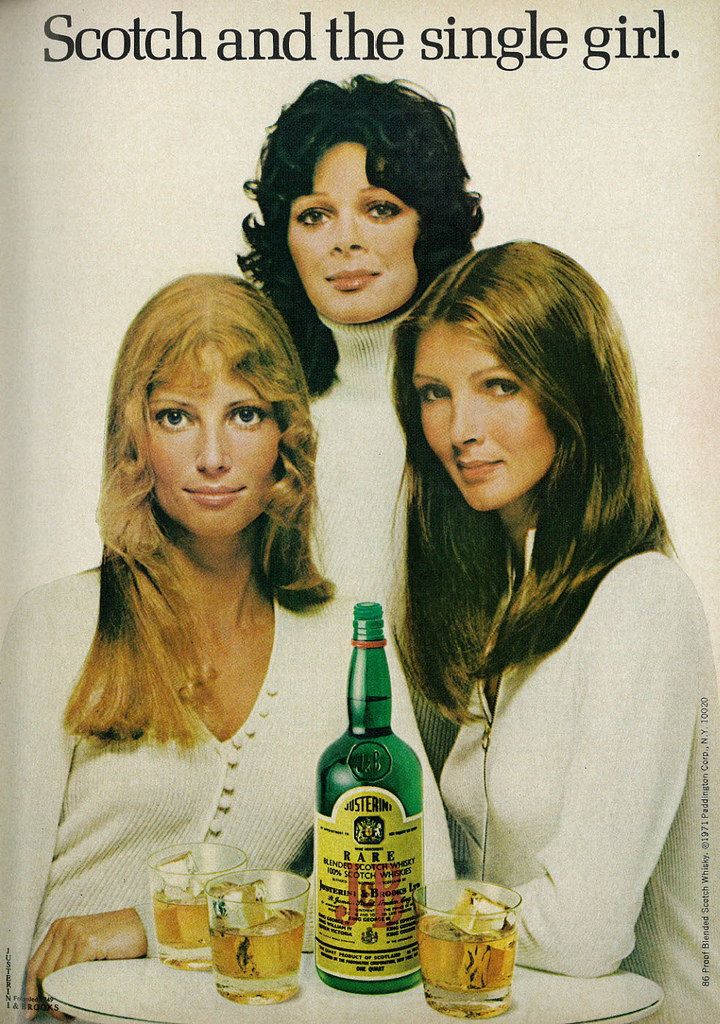

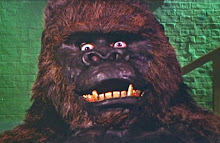
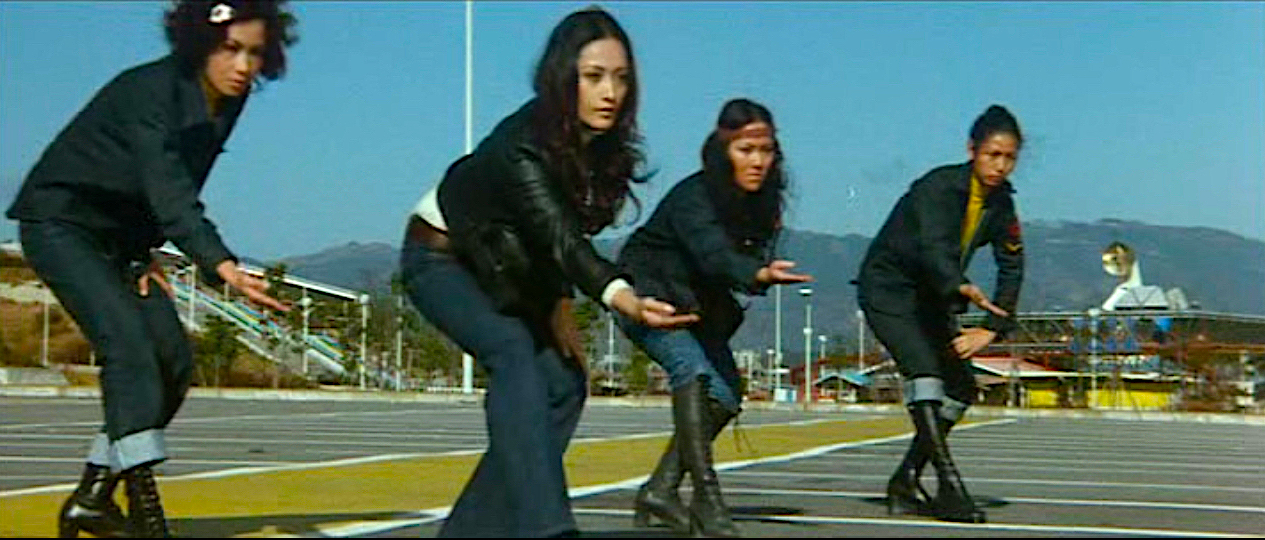


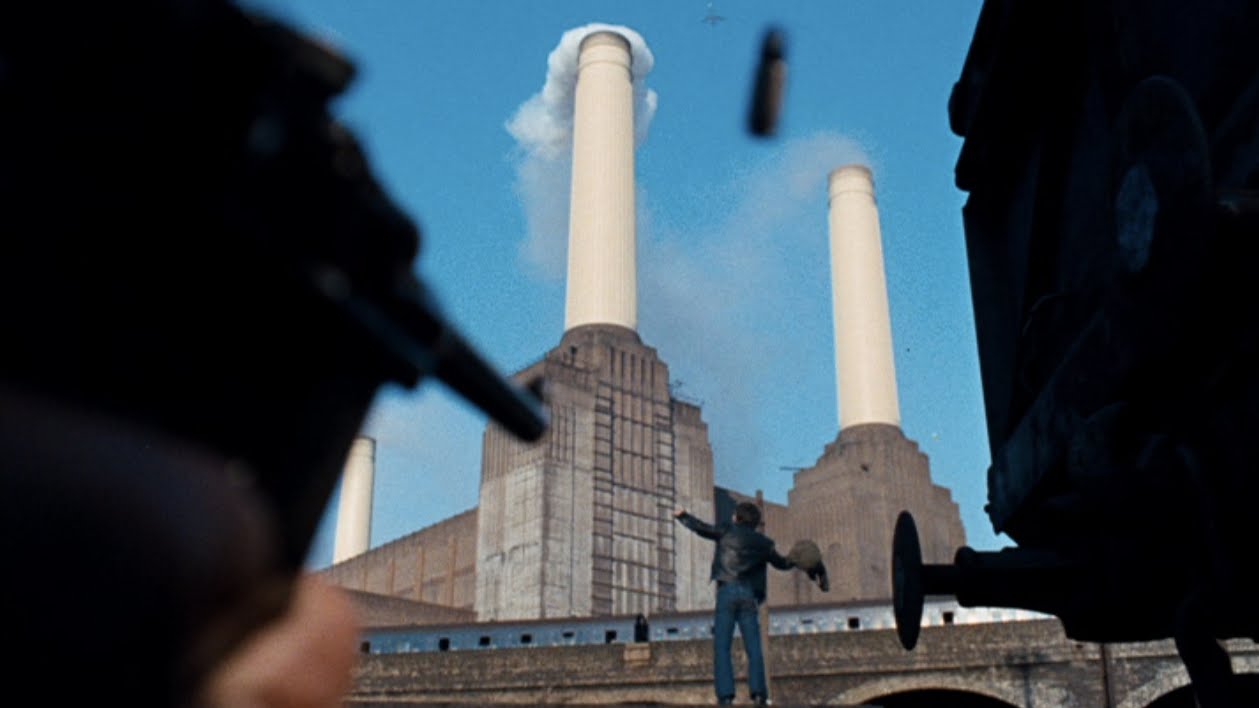
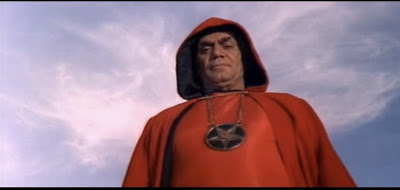








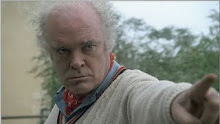
2 comments:
I may have to order this from the Warner Shop. I've never had the opportunity to see it and few things are better than a rant by Michael Gough in his prime.
Well there's certainly no shortage of ranting in this one - I'd say go for it.
Post a Comment